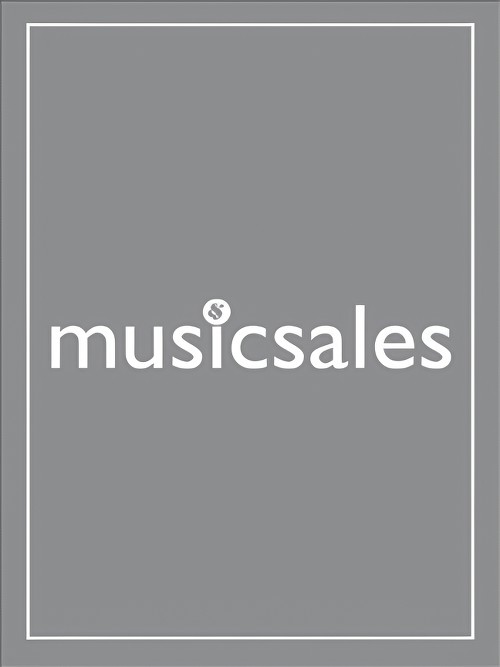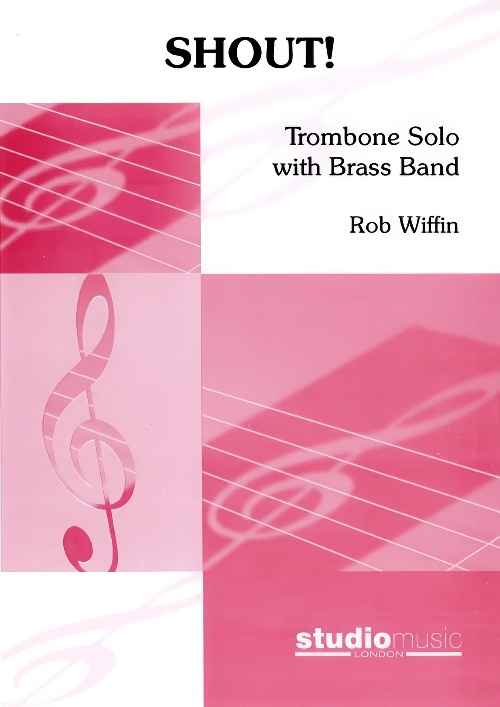Results
-
 £14.95
£14.95Deep Harmony (Brass Band - Score only) - Pullin, Stuart
Stuart Pullin unfortunately passed away at a very early age, just 32, but leaves a wonderful legacy of compositions. It was his wish that this moving arrangement of 'Deep Harmony' be donated to The Salvation Army for publication so that it can now be played and appreciated by all.
Estimated dispatch 7-14 working days
-
 £74.99
£74.99Backdraft (Brass Band - Score and Parts) - Zimmer, Hans - Myokoin, Masato
The hit movie Backdraft is one of the earliest soundtracks by award-winning Hollywood composer Hans Zimmer. Starring Kurt Russell amongst many other stars the film plays a dignigned homage to the highly dangerous life of fire workers. Behind the racing engines and blaring sirens the soundtrack is easily lost in the film but is highly charged and a fitting backdrop to the action on screen. This authentic arrangement by Masato Myokoin retains all the excitement and action of the original and will be a great addition to any concert or contest programme. Sure to be a blazing success! Duration: 4.45
Estimated dispatch 7-14 working days
-
 £42.95
£42.95Shout! (Trombone Solo with Brass Band - Score and Parts) - Wiffin, Rob
Shout! was written for Brett Baker to demonstrate a particular musical aspect of his trombone playing.It is a Latin jazz piece subtitled CCC 4 BB - Cha cha cha for Brett Baker - and shows the trombone's ability to act as a declamatory jazz voice, covering much of the range and expressive power of the instrument. In one sense the title also refers to the jazz tradition of a Shout chorus which often appears towards the end of a jazz piece, bringing the players together after they have all taken their improvised solos.Shout! should hopefully be enjoyable to listen to and, although not without its technical challenges, fun to play.Duration: 3.45Recorded on Polyphonic QPRL227D SHOUT!
Estimated dispatch 7-14 working days
-
 £24.95
£24.95Away In A Manger (Brass Band - Score and Parts) - Condon, Leslie
A beautifully crafted two verse arrangement of one of the most loved carols of all.
Estimated dispatch 7-14 working days
-
 £12.50
£12.50Away In A Manger (Brass Band - Score only) - Condon, Leslie
A beautifully crafted two verse arrangement of one of the most loved carols of all.
Estimated dispatch 7-14 working days
-
 £44.95
£44.95Canaan?s Land (Euphonium Solo with Brass Band - Score and Parts) - Graham, Peter
Derick Kane specifically asked Peter Graham to write a solo with the title 'Canaan's Land' in response to Stephen Bulla's solo 'Air 'n Variations' written for Aaron VanderWeele, all puns intended! The theme is the song 'Bound for Canaan's shore' and the first variation pays homage to Norman Bearcroft's 'The Better World' which was also especially written for Derick Kane. The slow section makes use of the tune 'A little star peeps o'er the hill' after which follows the finale, in a polonaise style, with further shades of 'The Better World'.
Estimated dispatch 7-14 working days
-
 £22.50
£22.50Canaan?s Land (Euphonium Solo with Brass Band - Score only) - Graham, Peter
Derick Kane specifically asked Peter Graham to write a solo with the title 'Canaan's Land' in response to Stephen Bulla's solo 'Air 'n Variations' written for Aaron VanderWeele, all puns intended! The theme is the song 'Bound for Canaan's shore' and the first variation pays homage to Norman Bearcroft's 'The Better World' which was also especially written for Derick Kane. The slow section makes use of the tune 'A little star peeps o'er the hill' after which follows the finale, in a polonaise style, with further shades of 'The Better World'.
Estimated dispatch 7-14 working days
-
 £34.95
£34.95Daniel (Brass Band - Score and Parts) - Gott, Barrie
This up-beat arrangement of the well-loved children's hymn is a favourite of all bands who have played it. Aspiring kit drummers will enjoy the 8 bar drum break.
Estimated dispatch 7-14 working days
-
 £17.50
£17.50Daniel (Brass Band - Score only) - Gott, Barrie
This up-beat arrangement of the well-loved children's hymn is a favourite of all bands who have played it. Aspiring kit drummers will enjoy the 8 bar drum break.
Estimated dispatch 7-14 working days
-
 £29.95
£29.95In Quiet Pastures (Brass Band - Score and Parts) - Steadman-Allen, Ray
All three songs contained in this selection are sprung from the ideas contained in Psalm 23. 'Trust in God', 'Shepherd, hear my prayer' and 'At peace with God' are cleverly linked into one seamless texture.
Estimated dispatch 7-14 working days
